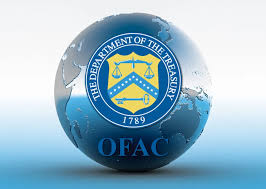Córdoba Music Group Settles with OFAC for $41,591 for Violations of Iran Sanctions Program

Córdoba Music Group LLC (Córdoba), a manufacturer of musical instruments based in California, has agreed to pay $41,591 to settle its civil liability for violations of sanctions on Iran. On nine occasions, Córdoba shipped instruments and related accessories that it knew were ultimately destined for Iran. Córdoba voluntarily self-disclosed the violations to OFAC.
Between June 4, 2014 and October 30, 2018, Córdoba maintained a distribution agreement with a Dubai-based company for sales in the Middle East, including Iran. In 2018, Córdoba sought to amend the agreement with the Dubai company to remove Iran from the territory because it had not successfully generated any sales in Iran and Córdoba believed that a new sales channel would help generate business.
Córdoba had previously become acquainted with an Iranian company at a trade show in Anaheim, California, and entered into an informal arrangement to distribute Córdoba products in Iran. Córdoba’s sales through this new partner began in November 2019. The new Iranian distributor instructed Córdoba to bill and ship products to a Dubai-based general trading company, which then shipped the products to Iran. Pursuant to this arrangement, Córdoba shipped instruments and related accessories valued at $118,831 that it knew to be ultimately destined for Iran on nine occasions between November 26, 2019 and March 30, 2022.

In February 2023, Córdoba was acquired by another U.S. company. On April 4, 2023, two months after the acquisition, a member of Córdoba’s sales team forwarded to the new parent a draft distribution agreement with the Iranian distributor providing that it would sell Córdoba’s products solely in Iran. Upon receiving the email, the new parent’s leadership directed Córdoba to terminate its business relationship and any pending transactions with the distributor and then began investigating the activity and submitted a voluntary self-disclosure.
Although Córdoba knew the products were destined for Iran, it apparently did not realize that indirect exports to Iran violated U.S. sanctions. This failure to understand the regulations was due to a lack of sanctions and export compliance training, interactions with Iranian distributors at domestic and international trade conferences, competitors allegedly selling their products in Iran, and the mistaken belief that indirect musical instrument sales to Iran were not prohibited. Córdoba’s conduct resulted in nine shipments ultimately destined for Iran between November 26, 2019 and March 30, 2022, valued at $118,831.
The statutory maximum civil monetary penalty applicable in this matter is $3,313,224. OFAC determined that Córdoba voluntarily self-disclosed the conduct and the case was not egregious. The base civil monetary penalty applicable in this matter equals the sum of one-half of the transaction value for each apparent violation, which is $59,416.
The settlement amount of $41,591 reflects OFAC’s consideration of the General Factors under the Enforcement Guidelines, including most significantly, by the fact that Córdoba implemented an enhanced sanctions compliance program by providing training for relevant personnel on U.S. sanctions and implementing continuing training programs, and instituting compliance procedures, such as extensive third-party screening requirements and sales order reviews.

As OFAC explained, the case demonstrates the importance of companies incorporating risk-based sanctions compliance into their business functions, especially when the companies are selling their products to a global customer base. As geographic reach expands, so does possible risk. This case similarly illustrates the risks facing companies of any size operating internationally that do not develop or maintain basic awareness of sanctions risks and do not institute appropriate measures to identify and prevent potential violations. Employee trainings and education that ensure accurate understanding of relevant sanctions regulations are essential to an effective sanctions compliance program. In addition, it highlights the caution that should be taken when discussing possible international distribution channels, such as at trade shows, where representatives from sanctioned countries may be lawfully in attendance but seeking to cultivate relationships with U.S. businesses that could result in prohibited trade. Such discussions may not reflect a clear understanding of which types of trade may be allowed under U.S. law.















